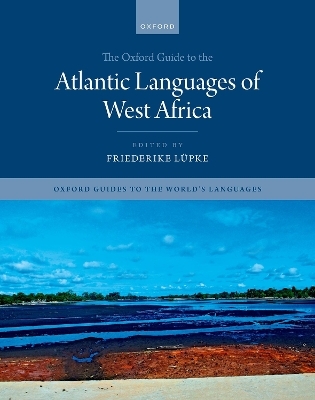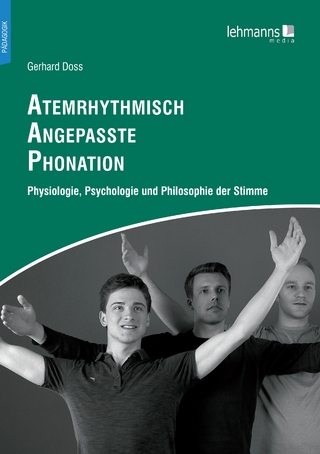
The Oxford Guide to the Atlantic Languages of West Africa
Oxford University Press (Verlag)
978-0-19-873651-6 (ISBN)
This volume presents the first book-length overview of the Atlantic languages, a small family of languages spoken mainly on the Atlantic coast of West Africa. Languages in this area have been used in diverse multilingual societies with intense language contact for the whole of their known history, and their genealogical relatedness and the impact of language contact on their lexicon and grammar have been widely debated.
The book is divided into four parts. The first provides an introduction to language ecologies in the area and includes two accounts of the genealogical classification of Atlantic languages. Chapters in the second part offer grammatical overviews of individual languages, including the most important non-Atlantic contact languages (Casamance Creole and Mandinka), while the third part explores Atlantic languages from a typological perspective, with chapters that explore formal and semantic aspects of their nominal classification systems, nominalization strategies, their rich system of verbal extensions, and the stem-initial consonant mutation that is attested in a subset of languages. The final part of the book investigates Atlantic languages in their social environments, including the creation of creole identities, secret languages, Ajami writing practices, language acquisition, the spread and use of Fula as a lingua franca, digital language practices, and language ideologies.
The volume is an essential tool for linguists interested in the languages of West Africa, language history and classification, patterns of language use in Atlantic societies, and typology and language contact more broadly.
Friederike Lüpke is Professor of African Studies at the University of Helsinki and Professorial Research Associate at SOAS, University of London. She studied African linguistics in Cologne and Paris and held a PhD scholarship in the Language and Cognition Research Group at the Max Planck Institute for Psycholinguistics in Nijmegen. Geographically grounded in West Africa, her research centres on the description of Mande and Atlantic languages in their multilingual societal contexts, including research on literacy and writing and inclusive multilingual education. She is a leading scholar in the emerging field of small-scale multilingualism studies.
Part I. Background and classification of the Atlantic languages
1: Friederike Lüpke: Language, land, and languaging in the Atlantic space
2: Konstantin Pozdniakov and Guillaume Segerer: A genealogical classification of Atlantic languages
3: G. Tucker Childs: Genetically-motivated clusters within Atlantic
Part II. Individual languages and language clusters
4: Stéphane Robert: Wolof
5: Raija Kramer: Fula
6: Noël Bernard Biagui, Joseph Jean-François Nunez, and Nicolas Quint: Casamance Creole
7: Denis Creissels: Mandinka
8: Loïc Perrin: Bassari
9: Alain-Christian Bassène: Joola Fooñi
10: Rachel Watson: Joola Kujireray
11: Stéphane Robert and Guillaume Segerer: Joola Keeraak
12: Alexander Y. Cobbinah: Baïnounk Gubëeher
13: Nicolas Quint: Djifanghor Nyun (Baïnounk)
14: Friederike Lüpke: Baïnounk Gujaher
15: Denis Creissels: Balant (Ganja)
16: Guillaume Segerer: Sua
17: Frank Seidel: Nalu
18: Frank Seidel: Baga Mandori
19: G. Tucker Childs: Kisi
20: G. Tucker Childs: Bom-Kim
Part III. Atlantic languages from a comparative and typological perspective
21: Denis Creissels: Noun inflection and gender in Atlantic languages
22: Alexander Y. Cobbinah: Noun class semantics in Atlantic
23: Rachel Watson: Nominalization in Atlantic
24: Sylvie Voisin: Verbal extensions in Atlantic languages
25: Fiona McLaughlin: Atlantic consonant mutation
Part IV. Atlantic languages in their multilingual environment
26: Jacqueline Knörr: Creolization in Atlantic West Africa: The example of Sierra Leone
27: Fiona McLaughlin: Ajami writing practices in Atlantic-speaking Africa
28: Anne Storch, Jules-Jaques Coly, and Sophie Wade: Secret languages in the Atlantic area
29: Ibrahima Abdoul Hayou Cissé: Multilingual children's language socialization in central Mali
30: Jean Pierre Boutché: The spread of Fula as lingua franca in Northern Cameroon: Social factors and linguistic outcomes
31: Kristin Vold Alexander and Daniel Alcón: Digital language and new configurations of multilingualism: Writing in a Senegal-based discussion forum
32: Samantha Goodchild: Multilingual people and monolingual perceptions: Patterns of multilingualism in Essyl, Basse Casamance, Senegal
| Erscheinungsdatum | 02.11.2024 |
|---|---|
| Reihe/Serie | Oxford Guides to the World's Languages |
| Verlagsort | Oxford |
| Sprache | englisch |
| Maße | 222 x 280 mm |
| Gewicht | 2178 g |
| Themenwelt | Geisteswissenschaften ► Sprach- / Literaturwissenschaft ► Sprachwissenschaft |
| Sozialwissenschaften ► Ethnologie | |
| Sozialwissenschaften ► Soziologie | |
| ISBN-10 | 0-19-873651-7 / 0198736517 |
| ISBN-13 | 978-0-19-873651-6 / 9780198736516 |
| Zustand | Neuware |
| Informationen gemäß Produktsicherheitsverordnung (GPSR) | |
| Haben Sie eine Frage zum Produkt? |
aus dem Bereich


